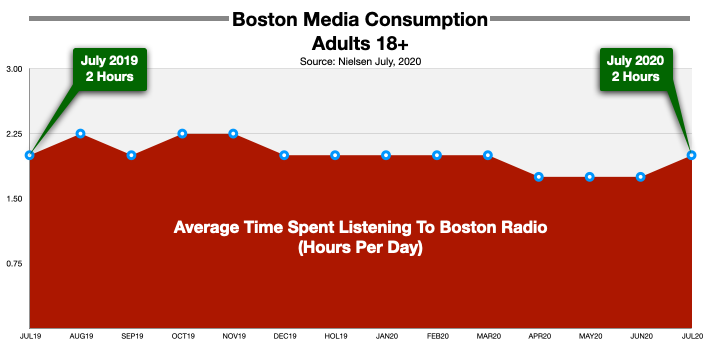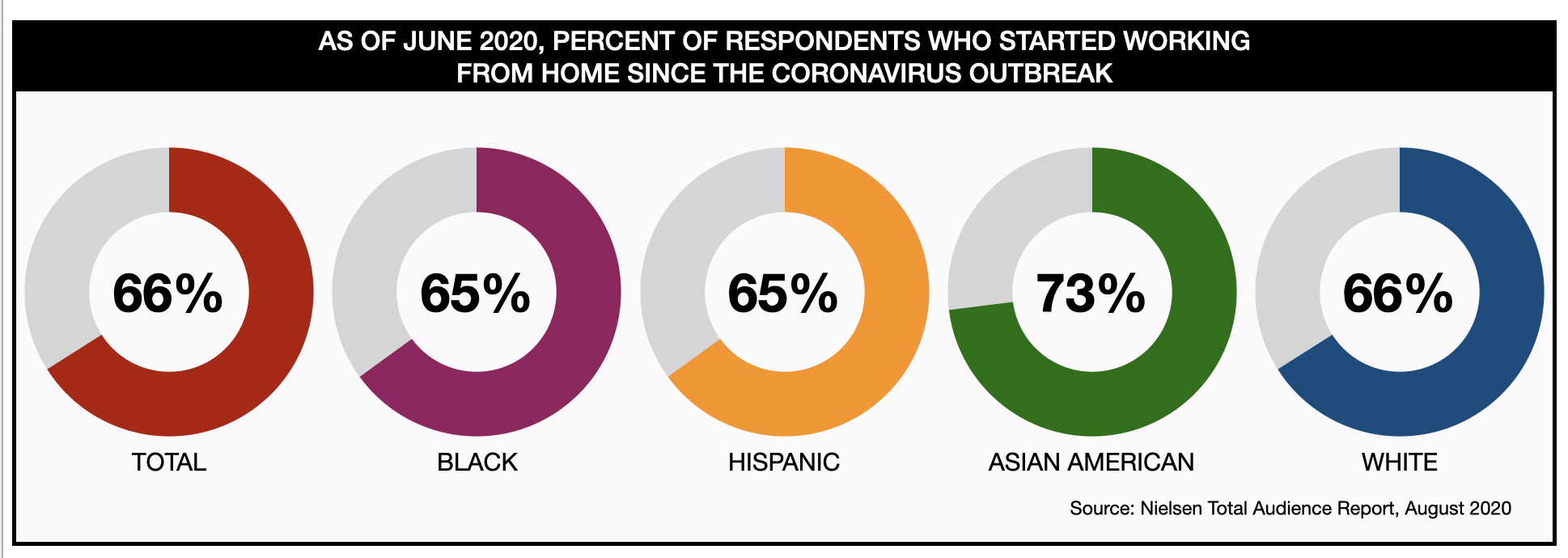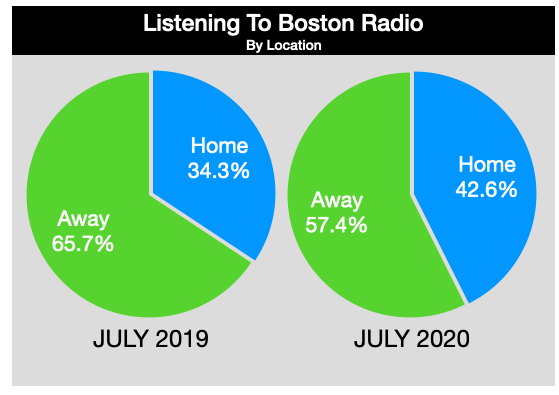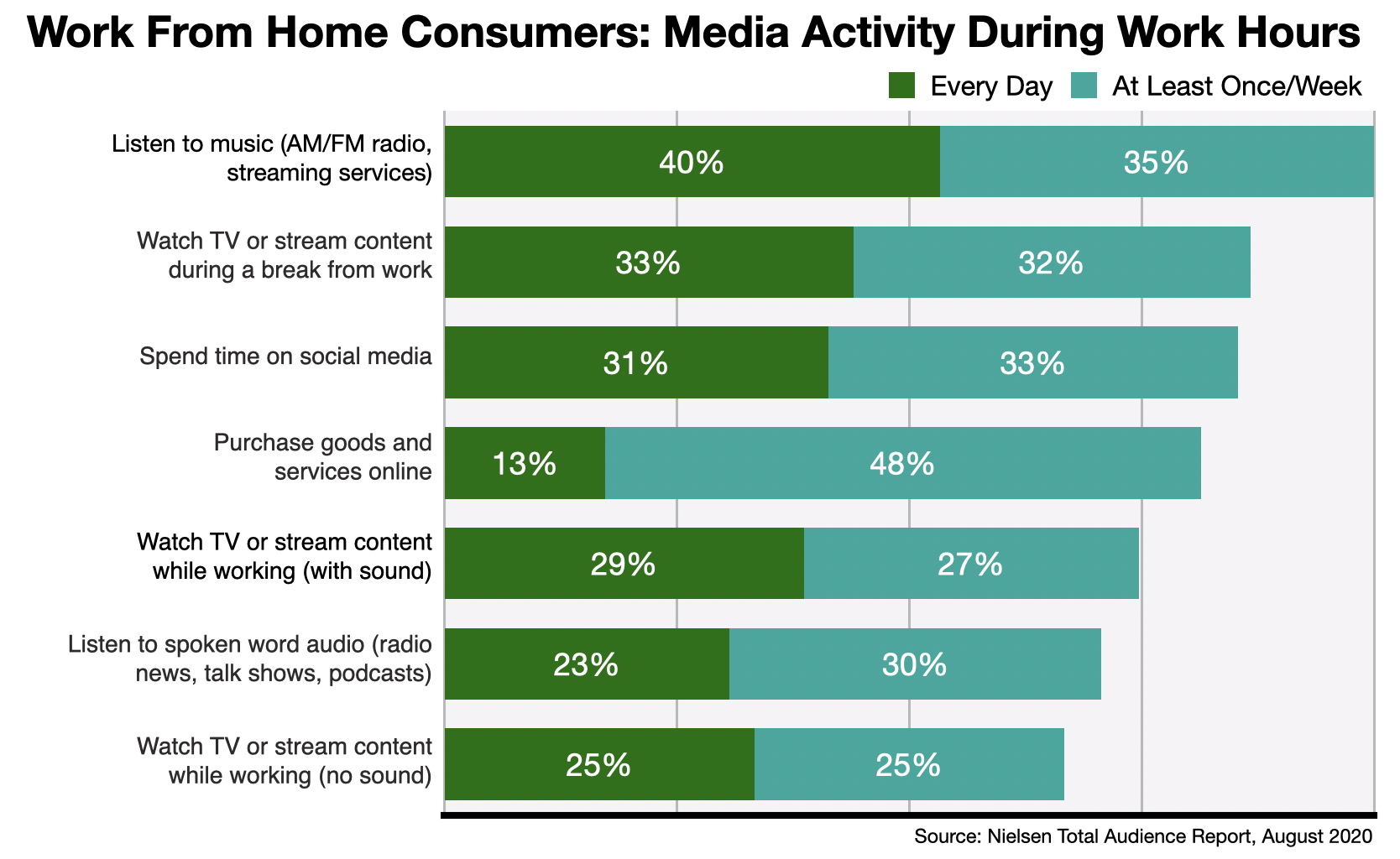Before COVID-19, most listening to Boston radio happened outside the home. Consumers were tuning-in to their favorite stations from the car on the way to their job. Then, they tuned-in when they arrived at work. They listened again during the commute back home.
Nielsen recently surveyed consumers who worked from home before and during the novel coronavirus outbreak. The results show, as of June, 66% of respondents now work from home full-time as a consequence of the pandemic.
As consumers are compelled to work from their houses and curtail their commutes, the share of at-home listening to Boston radio has grown by 24%, according to Nielsen.

Among homebound employees, Nielsen discovered that listening to music on radio remains an important part of their working hours.
Despite the disruptions to work-life and commuting habits, 3.1 million adult consumers spend, on average, two hours per day listening to Boston radio. This time spent with radio is unchanged from a year ago.
 Beginning in 1921, when WBZ became the first station in New England, small business owners have depended on Boston radio to market their goods and services through recessions, depressions, and natural disasters. All the research indicates that AM/FM radio is as dependable now as it was then.
Beginning in 1921, when WBZ became the first station in New England, small business owners have depended on Boston radio to market their goods and services through recessions, depressions, and natural disasters. All the research indicates that AM/FM radio is as dependable now as it was then.More Advertising Advice For Boston Small Business Owners
- Advertising in Boston: The Radio Century
- What Is The Best Way To Reach Boston's 4 Million Consumers?
- What Boston Consumers Need To Know Now About Your Small Business
- Advertising In Boston: Radio Listening Unchanged From Year Ago
- Advertising On Boston Radio Reaches Pay-TV's Cord Cutters
- Boston Retailers Prepare For $537 Million Back-To-School Season
- Drivers Hit The Road Taking Boston Radio Along For The Ride
- Advertising On Boston Radio: What Consumers Want To Hear
- Advertising In Boston: Consumers Pay More For Sustainable
- Boston Furniture Retailers Expect A Post-Pandemic Rebound






